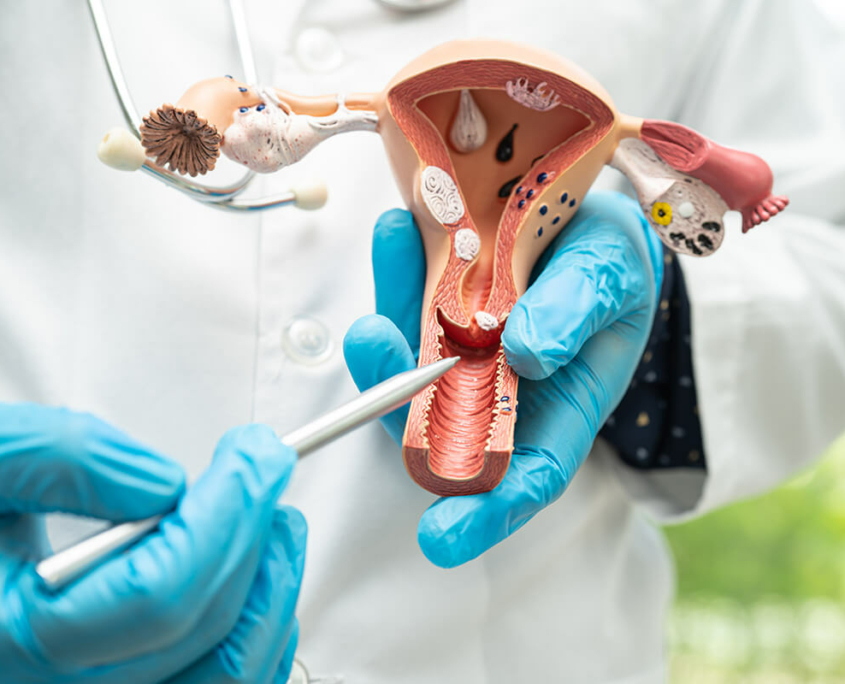Saturn Pelvic Health: Giving Women Back Control Over Their Bodies
Pelvic organ prolapse affects millions of women worldwide, yet it remains underdiagnosed, undertreated and, all too often, undiscussed. Existing treatments such as surgery or outdated pessaries fail to meet women’s real-life needs. Saturn Pelvic Health is ready to turn the tide. With Flexsupp, the company introduces a game-changing, self-managed solution that offers personalised comfort, freedom, and dignity.
The story of Saturn Pelvic Health begins with Dr Kim Notten and Dr Mirjam Weemhoff, both seasoned urogynecologists, who had spent years treating women with prolapse complaints. Despite their dedication, the available tools simply weren’t good enough.
Traditional treatment options for pelvic organ prolapse are far from ideal. Surgery, while effective for some, carries significant risks and a high recurrence rate; up to 30% in some cases. Meanwhile, conventional pessaries are based on outdated designs, often uncomfortable, difficult to fit, and nearly impossible to manage without clinical assistance. Many women stop using them within a year due to pain, inconvenience, or loss of autonomy.
Over coffee, Kim pitched the idea of doing something radically different to Bart van Diepenbeek, an experienced CEO with a background in corporates and scale-ups. Bart was instantly convinced. “Kim explained the problem, and I immediately thought: this could really help women. This isn’t some random product; this can change lives.” With biomedical engineer Lars Boogaard by their side, the four co-founders combined clinical expertise, technical ingenuity, and entrepreneurial drive.
Designed for real life
Flexsupp isn’t just an upgrade, it’s a rethink. After more than a decade of research, the team developed a pessary that adapts to each woman’s unique anatomy. It’s fully adjustable in length and width, easy to insert and remove, and designed for home use.
The device is about the size of a large tampon and includes an inflatable balloon that offers customisable support. Insertion is straightforward, and removal is as simple as deflating the device. It’s intuitive, discreet, and restores women’s control over their daily lives.

Clinically backed, personally driven
Flexsupp is generating serious interest from both clinicians and patients. Early tests have shown a 100% success rate in comfort, usability, and overall satisfaction. The team is now preparing for clinical validation and CE certification, with the backing of major hospitals including Radboudumc and Zuyderland Medical Group.
“There’s already a waiting list of women eager to try Flexsupp,” Bart says. “We talk to these patients every day. We understand what they need because we’ve listened.”
The ripple effect goes beyond individual users. Flexsupp could significantly reduce the strain on healthcare systems—fewer fittings, up to 43% fewer referrals, and potentially up to 22% fewer surgeries. GPs could manage the process with just one device in stock, reducing specialist visits and improving access to care.
They also hope to reach more women with similar issues, convincing them to improve their quality of life. Bart explains. “Now, only 3% of women with prolapse seek help. The rest stay silent, thinking it’s just part of life after childbirth. But it doesn’t have to be.”
How Briskr helped open doors
Saturn Pelvic Health crossed paths with Briskr at just the right time. Bart describes the collaboration as hands-on and refreshingly practical. “The workshops were low-threshold but packed with insights. The pitch training helped us refine our story.”
Thanks to Briskr’s network, Saturn connected with the Business Angel Network Nijmegen and entered promising conversations with multiple investors. “Briskr doesn’t just give you a stage, they help you own it”, Bart says. “Those connections made a real difference.”
A bold plan for growth
Saturn has reached this stage through smart grant funding and years of academic collaboration. Now, the company is closing its first round of investment to fund the clinical and regulatory process. Investor interest has been strong, with a wide mix of angels and VCs recognising the product’s impact and scalability.
Bart says. “We’re focused on real impact. This is something women have been waiting for.” The team plans to launch Flexsupp in Europe by 2027, with CE certification as the first step, followed by FDA approval in the US. Because pelvic organ prolapse is a global issue, the long-term potential impact of their innovation is enormous.
Want to know more about Flexsupp and Saturn Pelvic Health? Visit their website.




